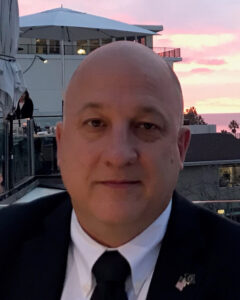 Todd Steffan is currently the designated Veterans counselor at Diablo Valley College. He was one of the key individuals who established the Las Positas College Veterans First program 2008/2009 and has served as its coordinator and then promoted to supervisor since inception. . He earned his MA in Career Guidance and Development from California State University – Chico, and a second master’s degree in counseling at San Jose State University. He is well-regarded by the veteran student population, faculty, administration, and community and is well-known among California Community Colleges for his innovative initiatives and tireless advocacy on behalf of our veterans. Mr. Steffan comes from a family of those who served, as his father served in the US Army and his grandfather served in World War I.
Todd Steffan is currently the designated Veterans counselor at Diablo Valley College. He was one of the key individuals who established the Las Positas College Veterans First program 2008/2009 and has served as its coordinator and then promoted to supervisor since inception. . He earned his MA in Career Guidance and Development from California State University – Chico, and a second master’s degree in counseling at San Jose State University. He is well-regarded by the veteran student population, faculty, administration, and community and is well-known among California Community Colleges for his innovative initiatives and tireless advocacy on behalf of our veterans. Mr. Steffan comes from a family of those who served, as his father served in the US Army and his grandfather served in World War I.
“I take pride that most of my higher education career has been serving student Veterans, military members, and their family members. I had a great 18 years at LPC, and I look forward to my next chapter serving students at DVC as a Veterans counselor.”